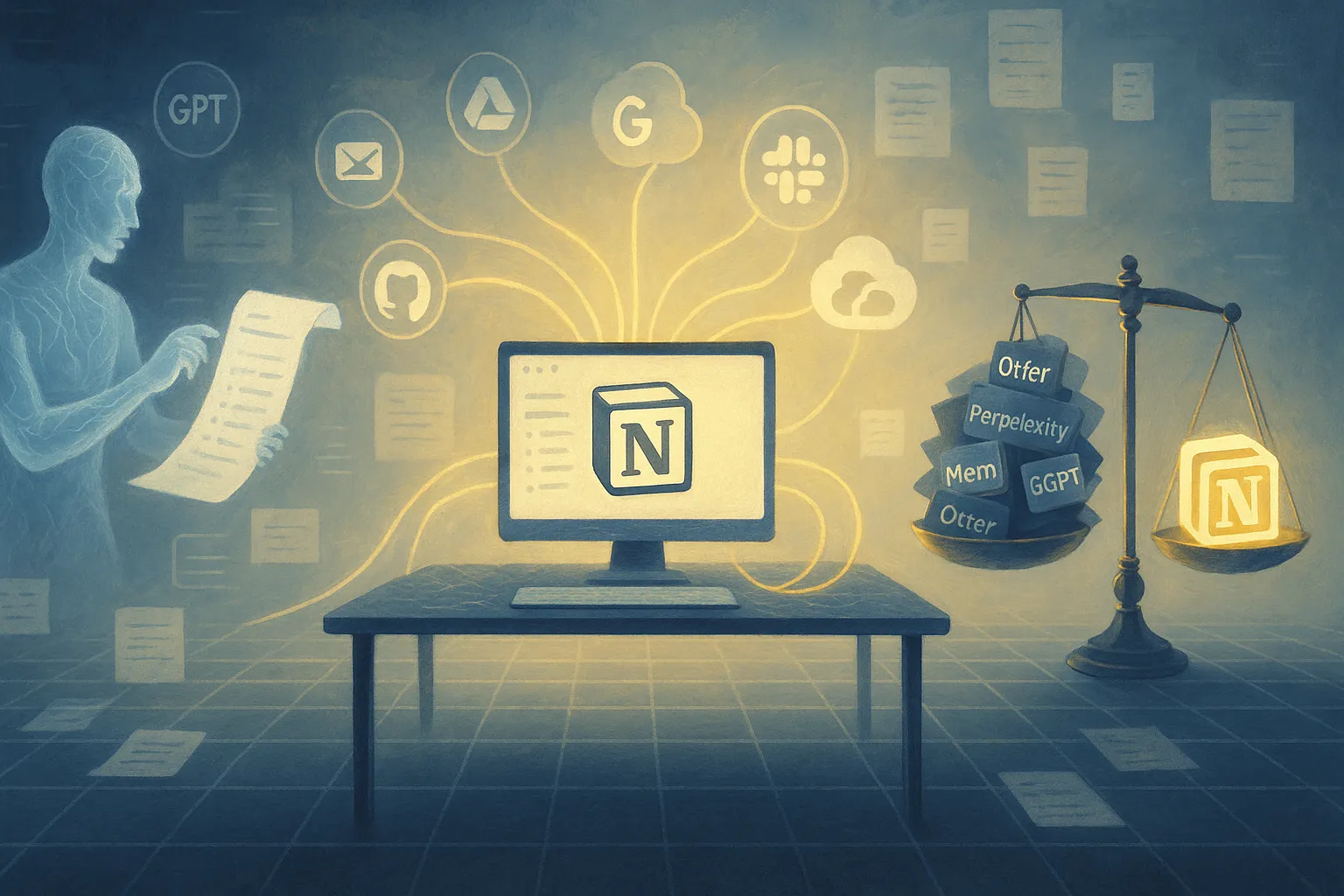Notion just raised its prices. The note-taking app now costs $30 per month for business users - double its previous rate. But there's a twist: The company packed in enough AI features to potentially replace hundreds of dollars in separate subscriptions.
The company launched "Notion AI for Work" today, adding three core features: meeting transcription, enterprise-wide search, and an AI research assistant. These tools work directly inside Notion's familiar interface, targeting the growing frustration with juggling multiple AI subscriptions.
Let's break down what's new. First up: AI Meeting Notes. The feature transcribes your conversations and pulls out key points automatically. No more frantic typing during calls or piecing together action items afterward. Just type "/meeting" or click through from your Notion Calendar, and you're set.
Never Miss a Meeting Detail Again
But the real power move is Enterprise Search. Think Google for your work life, but smarter. It digs through Slack, Gmail, Google Drive, and GitHub to find what you need. Ask it "What's the latest on the brand campaign?" and it pulls relevant info from across your apps. More integrations are coming, including Zendesk, Box, and Salesforce.
Research Mode rounds out the package. It's like having a research assistant who's read everything in your workspace. Feed it a topic, and it creates detailed documents by combining your internal knowledge with web sources. Early users report saving days of work with this feature alone.
Premium AI Models Included
Notion didn't stop there. They're throwing in access to OpenAI's GPT-4.1 and Anthropic's Claude 3.7. These AI heavyweights now live right in your workspace. The catch? They can't peek at your company data - they're strictly for general questions and complex reasoning tasks.
The pricing shift hits new subscribers today. The Business plan jumps from $15 to $30 per user monthly. Current Notion AI subscribers keep their existing features and rates. Free and Plus users get limited access to test drive the new tools.
Notion's math makes sense on paper. Individual subscriptions to meeting transcription services, enterprise search tools, and AI assistants can easily pass $300 monthly. Getting it all for $30 in one familiar interface could be a steal - if the features work as promised.
The Bigger Picture
The move positions Notion against specialized tools like Otter.ai for transcription while maintaining its broader appeal as a workspace hub. It's a bold bet that companies will trade higher prices for fewer subscriptions and better integration.
Early feedback suggests the gamble might pay off. Users report smoother workflows and less time lost switching between apps. The real test will come as more teams hit their renewal dates and weigh the increased cost against the promised productivity gains.
Why this matters:
- The era of separate AI subscriptions might be ending. Notion's move suggests a future where AI features come baked into the tools we already use, not as standalone services.
- The price hike reveals an uncomfortable truth about AI: These features cost real money to run. Expect more companies to raise prices as they add AI capabilities.











